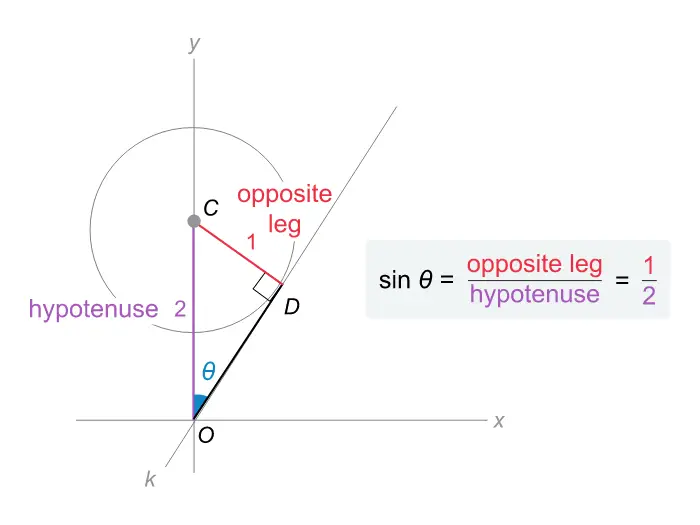ACT® Test Policies And Accommodations
To ensure fairness and consistency, the ACT® has established clear policies and guidelines for test registration, administration, and scoring. The ACT has set specific policies regarding the use of calculators on the test, as well as accommodations for test-takers with disabilities and special needs. If you fall into these categories, this article will help you sort through ACT rules and regulations and understand how to request accommodations.
ACT Testing and Security Policies
The ACT has established security measures aimed at promoting integrity and fairness. Test takers that do not follow the established policies during registration risk having their scores canceled and being banned from future testing.
Testing policies
As you prepare for test day, make sure to follow the ACT testing policies listed below:
- You must carry a valid photo ID that satisfies all the ID requirements and guidelines.
- Sharing calculators is not permitted, and you must bring your own calculator for the Math Test. The calculator must be on your desk during the test.
- It is prohibited to use phones, textbooks, electronic devices, or any other materials during breaks or while taking the test.
- You may not wear your watch during the test. Place it face up on your desk.
- Discussing or exchanging test questions and answers through any means of communication is strictly forbidden.
- You must stick to the predetermined schedule for each section and cannot skip or switch between them.
- It is forbidden to pretend to be someone else or ask someone else to do so.
- Leaving the test center before the end of the test will result in the nullification of your scores.
To know about the test policies that apply to students taking the ACT outside the US, check out our ACT guide for International Students.
Security measures
The ACT routinely revises its security measures to ensure accessibility while minimizing the risk of test security breaches. The following is an updated list of security measures aimed at facilitating fairness and equal accessibility:
- ACT requires students to provide their gender and school name for identification purposes during testing.
- As you may already know, students are required to bring and present an acceptable form of photo identification on test day.
- Before granting admission, the test center staff will match the student's photo ID with the roster to ensure the student's identity.
- Students must affirm their identity in writing before and after taking the test to avoid legal penalties.
- ACT may visit test centers on the day of the test to conduct additional security measures, such as capturing images of examinees during check-in.
- Students must register their intention to take the ACT test beforehand and will not be allowed to change the test center/date on the day of the test.
Prohibited behavior at the test center
In addition to the test policies and security measures mentioned above, you must not engage in any of the prohibited actions listed below, whether knowingly or unknowingly:
- Cheating is strictly prohibited.
- Not following the ACT test policies, rules and regulations at the test center.
- Behaving in a confrontational, threatening, or disorderly manner, and breaking any laws.
- Any sound or alarm generating devices causing noise during the test.
If you are found violating security policies or participating in any of the prohibited behaviors listed above, you will be disqualified, and your test will not be scored. If you witness any prohibited behavior, reach out to the ACT test security hotline at 1-855-382-2645 or fill out this form.
ACT test cancellation policy
- ACT test registration cancellation policy:
- You can cancel your ACT test registration any time before the test date. To cancel your registration, log in to your ACT account and follow the cancellation instructions.
- You may be eligible for a partial refund if you cancel within the designated period.
- If you registered for the ACT with the writing test and then cancel your registration, you will not receive a refund for the writing test fee, even if you cancel within the refund window.
- ACT test rescheduling and cancellation policy:
- Reschedule your ACT test via your account (additional fees may apply).
- If you fail to cancel your registration you will not be refunded, and you must pay for the test again. Contact ACT Customer Support to request a refund or transfer due to extenuating circumstances.
- Score cancellation and reporting policies
The ACT has policies about score cancellation and reporting that let test-takers decide how their scores are shared. If you are not satisfied, you can cancel your scores online within six calendar days of your test date, but your test fees will not be refunded. Check out our blog for details on how to cancel your ACT scores.
ACT Calculator Policy
You don’t need to bring a calculator on exam day because most problems are solvable without one. However, a calculator can help you save time and avoid mistakes. Per the ACT calculator policy, you can use any 4-function, scientific, or graphing calculator, as long as it does not feature a QWERTY keypad or Computer Algebra System functionality.
Which calculators are allowed on the ACT?
You can use any Texas Instruments (TI) calculator numbered 30 to 40. Other brands, like the Sharp EL 9600, are allowed as they long as they meet the following specifications:
- You can use parentheses for calculations.
- They are equipped to graph simple functions.
- They can accommodate positive, negative, and fractional exponents, and
- They can convert fractions to decimals and vice versa.
You can also modify the following calculators and use them for the ACT Math Test:
- For a calculator that can hold programs or documents, remove all documents and CAS programs.
- For calculators with paper tape, remove the tape to use it for the ACT Math Test.
- For calculators that make noise, turn off the sound.
- For calculators with an infrared data port (e.g., HP 38G series, HP 39G series, and HP 48G), cover the infrared data port with duct tape or electrician’s tape.
- For calculators with power cords, remove the cords.
Smart devices (tablet, smartphone, laptop or PDA) and electronic communication devices are prohibited.
Remember to “remove” the CAS program on your calculator rather than just “disabling” it to avoid violation of ACT’s calculator policy.
Prohibited calculators and devices
Below is a list of calculators prohibited on the ACT Math Test:
- fx-CP400 (ClassPad 400)
- ClassPad 300 or ClassPad 330
- Algebra fx 2.0
- All model numbers beginning with CFX-9970G
- HP Prime
- HP48GII
- All model numbers beginning with HP 40G, HP 49G, or HP 50G
- All model numbers beginning with TI-89 or TI-92
- TI-Nspire CAS (the TI-Nspire non-CAS is permitted)
In addition to the prohibited calculator models listed above, the following electronic devices are not allowed in the ACT test center:
- Electronic writing pads or pen-input devices
- Calculators built into phones or other electronic devices
- Calculators that can hold programs or documents
Calculator usage on test day
ACT has issued a few regulations when it comes to calculator usage on test day. Let’s learn what they are:
- Calculators may only be used on the ACT Math section.
- Sharing calculators between examinees during the test is not permitted.
- You may use calculators with audio or braille functionality only if authorized in advance by the ACT or your test coordinator.
- Do not connect your calculator to the testing device.
- Using prohibited devices or calculators not authorized by the ACT may result in your dismissal from the test center or your scores being canceled.
- You can bring an extra calculator or extra batteries as a backup.
If you need more help understanding the ACT calculator policy, reach out to the ACT helpline at 800.498.6481.
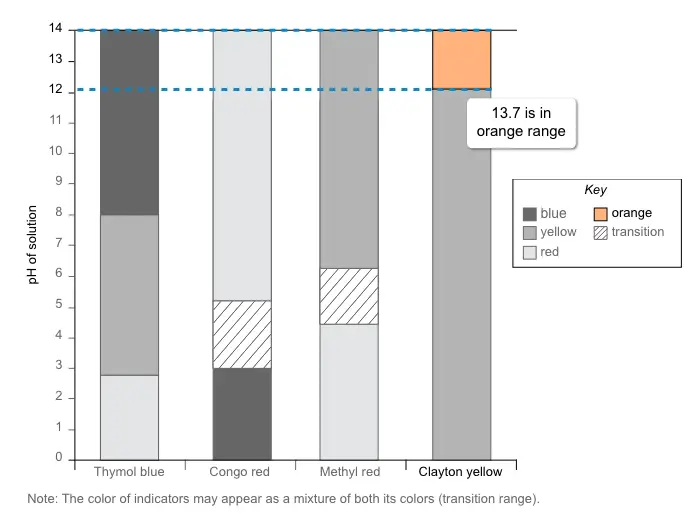
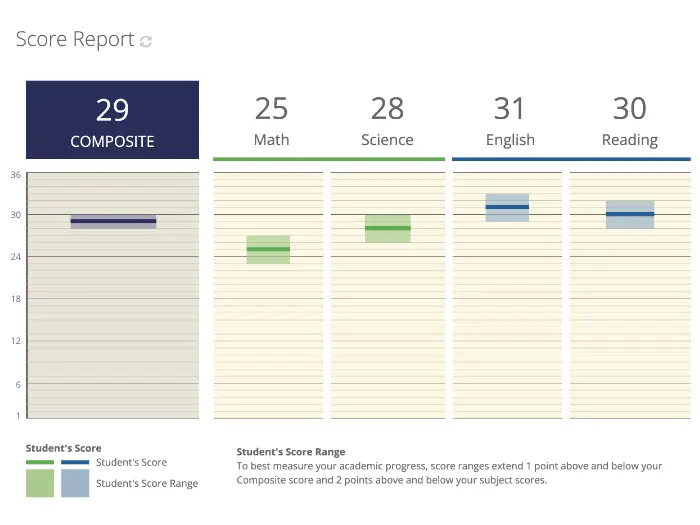
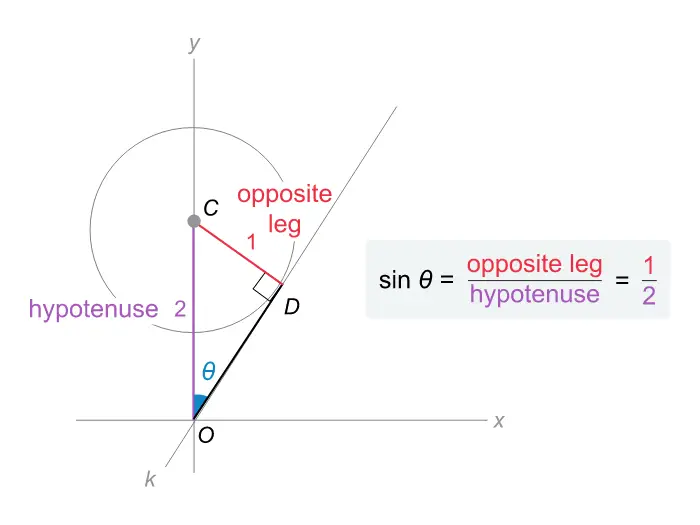
ACT Test Accommodations
Taking the ACT can be a stressful experience, particularly for students with disabilities. Fortunately, the ACT provides support and assistance to students with disabilities and special needs. ACT test accommodations are modifications to the testing environment, format, or procedures intended to provide students with documented disabilities, English Learners (ELs), or other special needs with the opportunity to demonstrate their knowledge and skills.
Who is eligible for accommodations on the ACT test?
Students diagnosed with a documented disability that affects your ability to take the ACT are eligible for accommodations. You can also receive them under an existing IEP (Individualized Education Plan) or 504 plan. To receive accommodations due to disability, you’ll have to undergo a diagnosis and document your disability(s) under one or more of the types listed below:
- Cognitive or intellectual disability
- Learning disability
- Motor disability
- Psychological disability
- Sensory disability
What types of accommodations are available on the ACT test?
- One and one-half time
- Double time
- Triple time
- Breaks as needed
- Multiple-day testing
- Small group or individual testing
- Wheelchair accessible room
- Seating near the front of the room to lip-read spoken instructions
- Access to food, drink, or medication
- Pre-recorded audio
- Reader
- Text-to-speech
- Screen reader
- Braille
- Large-print test
- Sign language interpreter for test items
- Scribe, or word processor for the writing test
- Bilingual dictionary/glossary
- ACT translated test directions
How long is the ACT test with accommodations?
Extended duration accommodations vary by category. Students awarded extra time can self-pace, but must take the test in the standard order. In other words, students can choose how they distribute their time between English, Math, Reading, and Science. While accommodations ease the time pressure students feel when taking the ACT, more time doesn’t mean longer breaks. If a student requires more than the standard 10-minute break after a section, they must file a separate request with ACT.
Below are ACT test times with respect to each accommodation category:
| Extended Time Category | Time per test | ||||
|---|---|---|---|---|---|
| English | Mathematics | Reading | Science | Essay | |
| Double time over multiple days | 90 mins | 120 mins | 70 mins | 70 mins | 80 mins |
| Triple time over multiple days | 135 mins | 180 mins | 105 mins | 105 mins | 120 mins |
| Time and a half over multiple days | 70 mins | 90 mins | 55 mins | 55 mins | 60 mins |
|
Standard time over multiple days OR
Single session with authorized stop-the-clock breaks |
45 mins | 60 mins | 35 mins | 35 mins | 40 mins |
|
Standard time for MCQ tests + double time for Writing Test Single session |
45 mins | 60 mins | 35 mins | 35 mins | 80 mins |
|
Time and a half (single session, self-paced) |
5 hrs | 6 hrs | |||
A 150% time extension is granted only in rare circumstances.
What are the requirements for requesting accommodations?
You must provide one or more of the following documents upon submission of your accommodations request application:
- Current Individualized Education Program (IEP) or Section 504 Plan.
- Current and official accommodations plan if you don’t have an IEP or Section 504 Plan.
- An expired IEP or Section 504 Plan if you’re no longer able to attend school.
- A licensed, qualified professional's report and diagnostic documentation for your physical or mental impairment that limits major life activities.
An Exceptions Statement Form must be submitted by an examinee who lacks a documented accommodation history, and a detailed explanation of why accommodations are necessary.
How to apply for ACT accommodations?
All accommodations must be requested with supporting documentation through the TAA (Test Accessibility and Accommodations) portal. Ideally, you should work with your school testing coordinator to request accommodations for the ACT.
- Create and/or log in to your MyACT account to register for the test and select “yes” when prompted to confirm whether you need accommodations during the registration process.
- After completing the registration process, you will receive an email that you need to forward to your school test coordinator.
- You’ll also need to submit the completed Consent to Release Information to ACT along with the email mentioned above.
- Here are the things you need to keep in mind during the submission process:
- Your details
- Test date and center information
- Reason for the accommodations request
- Details of the plan you wish to opt for
- List of accommodations and/or supports
- Required documentation
What happens after you submit the request, and how long does it take to receive approval for accommodations on the ACT test?
10-14 days after submitting your request, a "Decision Notification" will appear on the TAA system portal. If approved, the letter will contain a PIN number for the TAA and all approved accommodations. Ask for a copy from your school test coordinator, print it, and keep it handy.
Also, check with your test coordinator to make sure your name is included on the Accommodations and Supports Roster.
Appeal process for denied requests
If your request is declined, ask your test coordinator to review it, then resubmit it before the late registration deadline.
Can students also request accommodations without the help of the school?
Yes, students can request accommodations for the ACT without the help of the school. To do so,
- Create or log in to your ACT account and register for the ACT after filling out your accessibility needs.
- You will receive an email from ACT with a link to your request application.
- Send your completed request with all the required documentation before the late registration deadline.
You can do so via:- Email: [email protected]
- Fax: 319.341.2415
- Mail: ACT Special Testing, 301 ACT Drive, PO Box 4028, Iowa City, IA 52243
Deadline for requesting accommodations
If you need ACT accommodations, it's important to start the process early and follow instructions carefully. Keep tabs on ACT registration dates and submit your application before the deadline. If you need to resubmit your documents, make sure to do so before the late registration deadlines.
English Learner (EL) Support for the ACT
The ACT provides English learner support to US (including US territories and Puerto Rico) students who are not proficient in English. English learner support for the ACT consists of:
- Extended time
- Bilingual dictionaries
- Testing in a small groups
- Translated instructions
To receive EL support, you must document your English language proficiency in one or more of the following ways:
- An appropriate English language proficiency assessment result
- Participatory document in a school-based English language acquisition program
- Formal English learner (EL) plan to demonstrate supports received due to limited English proficiency
Arranged Testing for the ACT Test
ACT arranged testing allows students to take the ACT through a special administration for a group of students. This type of testing is usually arranged by schools and school districts for students who reside in the US, US territories, or Puerto Rico.
Who is eligible for ACT Arranged Testing?
You can request an arranged testing if you meet one or more of the following criteria:
- Your religious faith prohibits Saturday testing, and a non-Saturday test center is not scheduled within 75 miles of your location for your test date/year.
- There are no test centers within 75 miles of your location for any test date during the testing year.
- You are restricted to a correctional institution throughout the testing year, preventing you from taking the test on any of the scheduled test dates.
How to schedule ACT Arranged Testing?
If you meet one or more of the requirements listed above, you can reach out to your school test counselor and ask for the available arranged testing windows at your location. They will also help you register.


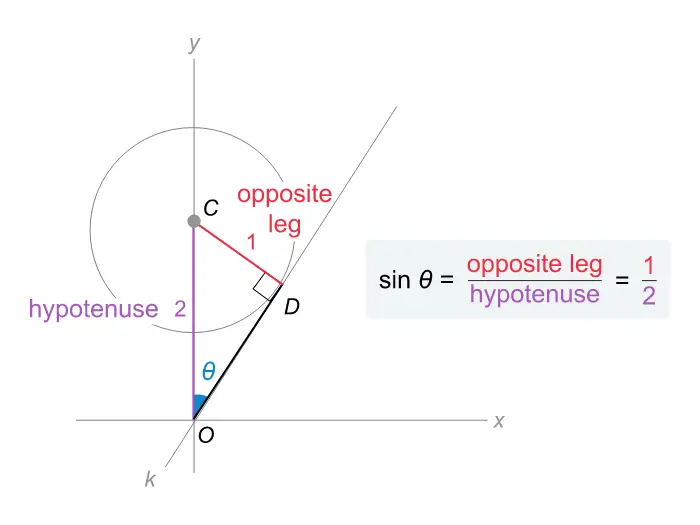
Frequently Answered Questions (FAQs)
There are three broad categories for ACT test accommodations:
- Accessibility accommodations
- Assistive technology, and
- Extended time
